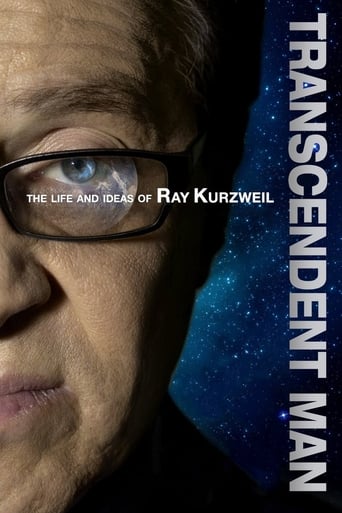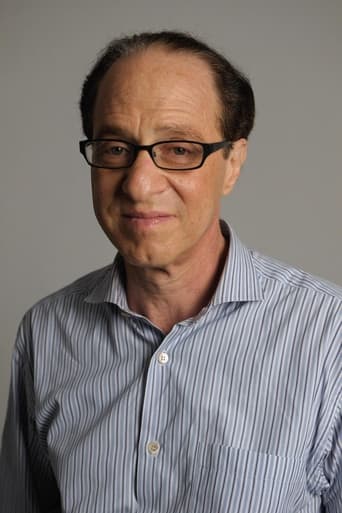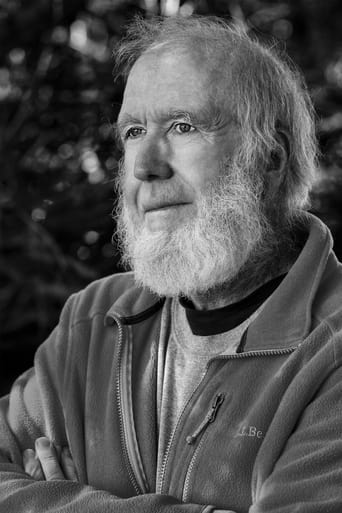The compelling feature-length documentary film, by director Barry Ptolemy, chronicles the life and controversial ideas of luminary Ray Kurzweil. For more than three decades, inventor, futures, and New York Times best-selling author Ray Kurzweil has been one of the most respected and provocative advocates of the role of technology in our future.


Reviews
Kurzweil is one of those wannabe prophets of technology that, in their own deluded way, sickly mirror religious prophets in their doom and/or wonder. In Kurzweil's case, his vision of tomorrow is all wonder, but a wonder based on information with no ability to process it. In short, Kurzweil is glaringly void of wisdom (after all, sans trials, intellect cannot advance). He bases this on what he claims (as well his acolytes) to be his near flawless prediction history. Being naturally wary of such claims, it took a less than 60 second Google search to find out that Kurzweil's predictive abilities were far less than perfect, and often so nebulous that one wonders if he secretly made much of his fortune as a carnival seer. Yes, he does solidly in technological predictions, but rather abysmally on softer predictions involving society ad things human centered.Yes, Kurzweil has invented many useful gadgets, but none of this qualifies him to speak with any authority on any subjects outside his narrow purview. However, Kurzweil is a multimillionaire, which in America means he is a 'genius' of the highest order, even if his mind is almost painfully Functionary as it flails about in its own idees fixe. In one of the film's grand moments of irony, the hypochondriacal Kurzweil discourses about how he once had diabetes, and, through a regimen of taking over 200 pills a day, he has successfully 'reprogrammed' his body into being a lean and healthy machine. Then we hear that the man suffered a heart attack, due to a faulty heart valve, during filming. Does this chasten the man? No. In fact, we get an even deeper delve into what can only be fairly described as the man's obsessive compulsion for his life's work- and that is cybernetically somehow resurrecting his father, who died when Kurzweil was young. Now, one might think such a revelation would add a patina of pathos to the film. It does not, for Kurzweil is just so stupid in his pursuit (as example, to get the most accurate simulacrum of daddy he has saved decades old receipts and financial notations from his father, as if these will, when worked into some magical future algorithm, have any bearing on making as HAL 9000 of his old man). Lunacy unfettered. Instead of praise for Kurzweil, the film actually engenders pity for his delusive pursuit.Balancing out the man's all too rosy optimism is a panel of gloomy counterparts who revel in their own sci fi fantasies and clichés of the bleak cyberpunk future that awaits us, replete with Terminators, human bondage, cyborgs, ultimate wars between AI true believers and fanatical Luddites, etc. It's all quite laughable, for predictions of the future almost always get some things right and most wrong. As example, in the 1960s of my youth, the 21st Century was to be a Jetsons-like propelled time of flying cars with no idea of the Internet. What these wannabe Nostradami miss is that, in twenty or ten thousand years, people will still be people (bitching of taxes or bad bosses or life's general futility), cybernetically enhanced or not, and technology has always served human needs, and adapted to them, not supplanted them, nor made us adapt to them. Like the two prior films, this one features stellar technical work by cinematographer Shawn Dufraine and editor Meg Decker, as well as one of the better film scores of his hit and miss career by Philip Glass.Naturally, Kurzweil's claim to fame rests on his idea of The Singularity- the time wherein humans and machines merge, thus allowing immortality to be achieved. Kurzweil claims this will occur before mid-century. One of the few non-extremist talking heads- a medical doctor, William B. Hurlbut, finds the claim absurd, given how little we currently know of the human genome, body, and, especially, the brain. Other than Kurzweil, the oddest of the talking heads is AI researcher Hugo de Garis. This man is so condescending in his views (which are of the gloomy sort) that, while warning of his future hell of billion slaughtered, in what he calls the impeding Artilect War, actually feels he needs to explain that Artilect is a portmanteau of the words artificial and intellect.At the center of all these would be pundits' predictions is a reality that they assiduously think that, by not mentioning, will be avoided, and that is The Law Of Unintended Consequences. A minor example: the rise of digital information, in the 1980s, was hailed with the claim of being a green technology that would virtually eliminate paper copies of information, thereby saving reckless deforestation. Instead, the near ubiquity of personal computers has seen a mind-boggling increase in paper production and consumption for information, as private citizens and business print up emails and documents as backups for the digital information. More paper is consumed than ever before.Nonetheless, Kurzweil is an oddly fascinating subject for a film- the ever scared little man wasting his brief time alive on chimeras that are best left for a later time, even if not for the adulatory reasons director Ptolemy intones in virtually every scene of Transcendent Man, for, far from being transcendent, Kurzweil comes off as an emotionally arrested naïf, tilting at a Quixotic future he is wholly unprepared to wean himself from.
One part biography, one part brain food; as an appetizer to the thought path of noted futurist Ray Kurzweil, it can be difficult at times to separate fact from fragment over the course of this documentary. Kurzweil's favorite subject is one of increasing relevance, perhaps even by the minute: he seeks to pinpoint the moment of so-called "singularity," when mankind's built-in body chemistry will finally cross the line into his rapidly-developing technological and biological know-how. In short - how soon will we be able to back up our thoughts and feelings to an external hard drive, what sort of moral and philosophical arguments will be made for and against the practice, and where will the ball of wax roll after that debate is behind us? Though its post-production effects can get a bit over-the-top at times, reminding viewers more than once of the over-ambitious "world of tomorrow" predictions popular in the 1950s, the film is largely successful at fostering a curious sort of fascination with the current point in history and the staggering number of possibilities present within our lifetime. Kurzweil himself is to thank for much of that, as his smooth, relaxed speaking gives the impression that anything is possible, even if (as some of his detractors point out during the film's apex) he completely overlooks humanity's tendency to use such moments for evil causes as well as good. Intensely interesting stuff that effectively sows the seeds of conception.
Kurweil and many others have been chattering about their "Singularity" since at least the mid- 1990s. This is not the astronomical phenomenon, but is similarly dense. Basically, the notion that machines, specifically computers, will someday soon exceed the intelligence, cognitive, perceptual, analytical, and other mental powers of humans, and become "self-aware" and achieve consciousness. As seen in the Terminator movies, The Matrix, this has become one of the basic, stock tropes of science fiction, though it has been around in fundamentally the same form as present since the early 1980's, at least. Interesting stuff, and not only for entertainment purposes. And clearly machines will (and have already) become more able than humans at a wide range of tasks. From Big Blue beating Gary Kasparov at chess more than a dozen years ago, to welding robots in auto plants, machines do many things faster, and ultimately better than man. Persons under 20 have much less "data" in their heads, having come to rely so heavily on Wikipedia and Google (having been taught to do so by parents and teachers, in fact), and the online fact is up-to- the-minute and dead-accurate, isn't it? More reliable than what lies in your mind? No doubt computers will continue to increase in power, and in the influence they have on our lives. And we will come to rely even more on them than we do now.However, Kurweil, like almost all the other exponents of the Singularity, including those offering a much darker version of the future than Kurweil's, fails to understand and take account of a number of critical points. First, the notion of consciousness/awareness, and even of intelligence itself is poorly defined. Neurologists, brain scientists, psychologists, who study the human mind as a profession disagree fundamentally as to what these qualities even are, how they work, or why one individual human has them in abundance, another hardly at all. The human mind and brain may truly be the last frontier of science. We know less, understand less, about the brain and mind than we did of infectious disease in the early 19th century, and psychologists and brain scientists would agree. We are only making a bare beginning at understanding the brain and nervous system, and how it works, and how we actually use it.For Kurweil, or anyone else, to predict machines of any sort will attain human levels of consciousness, intelligence, or thought by 2040, or even by 2080 (two frequently cited dates) is a patent absurdity which takes no account of the state of neuro-science and psychology. Who will design or program this machine that emulates, then exceeds, the human brain/mind? In order to make a copy, you have to understand the original in every nuance. Not the kludgy, narrow silliness of "Eliza" or "Racter", but something that can reliably pass a Turing test and also learn. And as for self-awareness, that would be a trick, wouldn't it? You'd need some sort of reverse Turing test to apply to the machine. That's Kurweil's problem, and that of his colleagues. They are, none of them, professionals in medicine, psychology, brain science, or neurology, nor do any of them (that I am aware of) have ANY training in these disciplines. And until brain science advances a GREAT deal, I fear there is little hope of a machine that even approaches human consciousness, nor general ability and ADAPTABILITY and the ability to LEARN. For focused, targeted tasks there are super-human machines, and will be more and better every year. Futurists would do well to understand the question before giving out answers, especially extraordinary 'predictions.' There are computer scientists working with research physicians and brain scientists, each learning the others fields (a very healthy activity for progress into such a brave new world), and the most optimistic among them might predict a computer that you can actually have a real, spoken conversation with (on LIMITED subject matter) in another 20 years. As for a whole mind, anything coming anywhere NEAR to the overall human capacity for language, learning, problem solving, changing one's self to suit the environment (and the environment to suit one's self), and both analytical/logical thought as well as creative/lateral/syncretic thought, that will have to wait until we first understand what it is. Oh, of course. I forgot. What about the machine that improves and modifies itself when the lights are turned off? It'd first have to have a motive or some sort of imperative to do that, and more importantly, some model of what it was modifying itself INTO, and would have to understand that model at its essence, which is the whole problem and main barrier to the human endeavor towards this end. It's a catch-22: you need consciousness and human intelligence to build it, and to WANT to build it. So sorry Ray, it ain't gonna happen in your lifetime (and you should look elsewhere for the talents and ideas that will eventually get us there. They aren't to be found is CSE programs or Silicon Valley)."Transcendent Man" was a fun docu to watch. Kurweil is an articulate spokesman for his ideas, and a likable fellow. This is a thoughtful, well-made non-fiction film, and should spark a great deal of thought in those interested in the subject.
....but this whole film seems to be based on the foundation that every prediction Raymond Kurzweil has made so far has been correct, and that every invention he's created has been successful. I find this to be disingenuous at best. The handful of correct predictions presented as evidence merely serves to make me wonder : Did Kurzweil only make this small list of correct predictions, and shut up the rest of the time? Was his plethora of correct predictions so overwhelming that severe editing was required for brevity? I find this impossible to accept. If you want me to be impressed with your successes, Ray, you must admit your defeats. Kurzweil's claim that man's lifespan used to be 25 years is a blatant misuse of statistics. His claim of rapidly multiplying information ignores that much new information disproves old information. I'll stop now.



